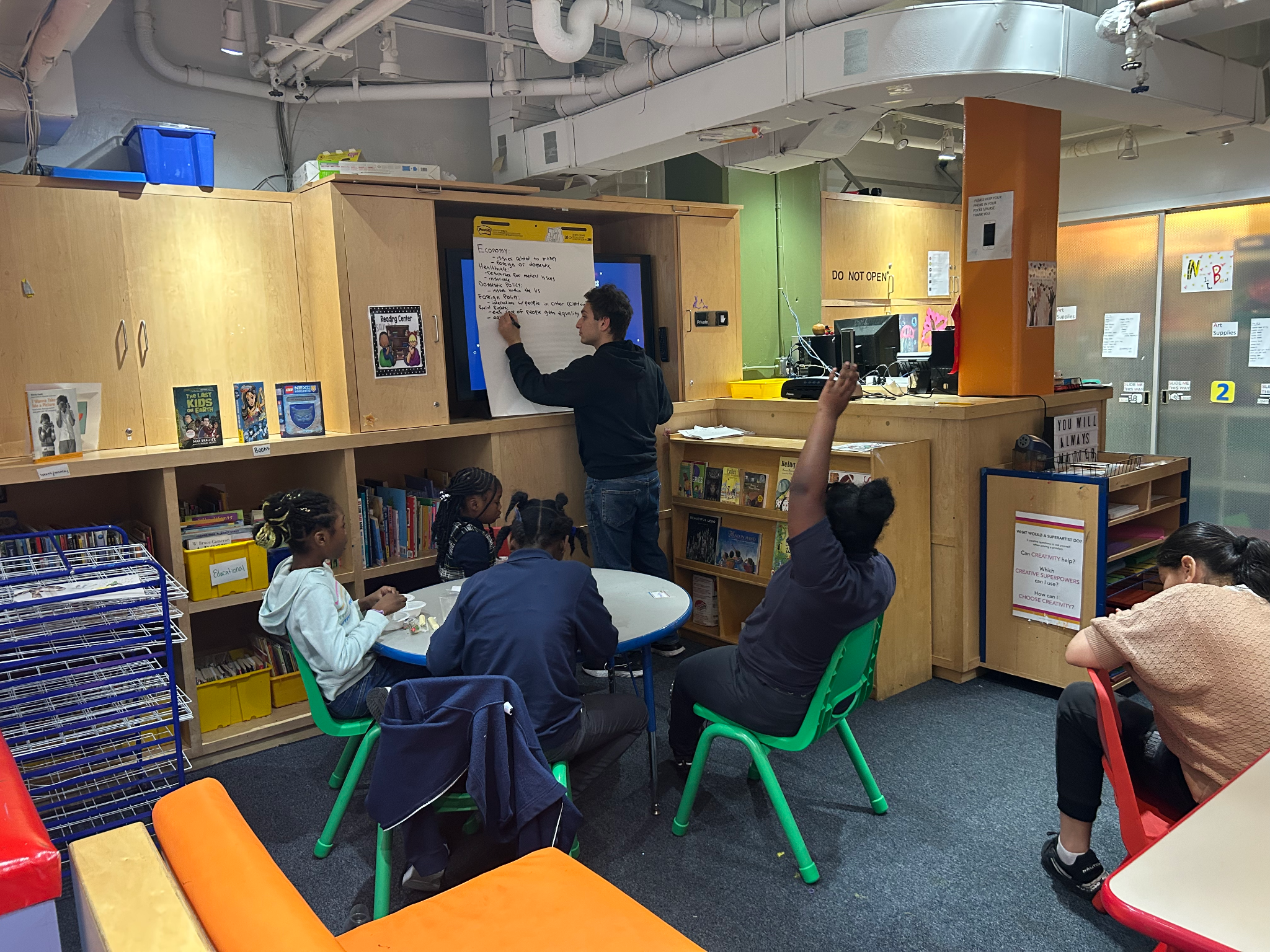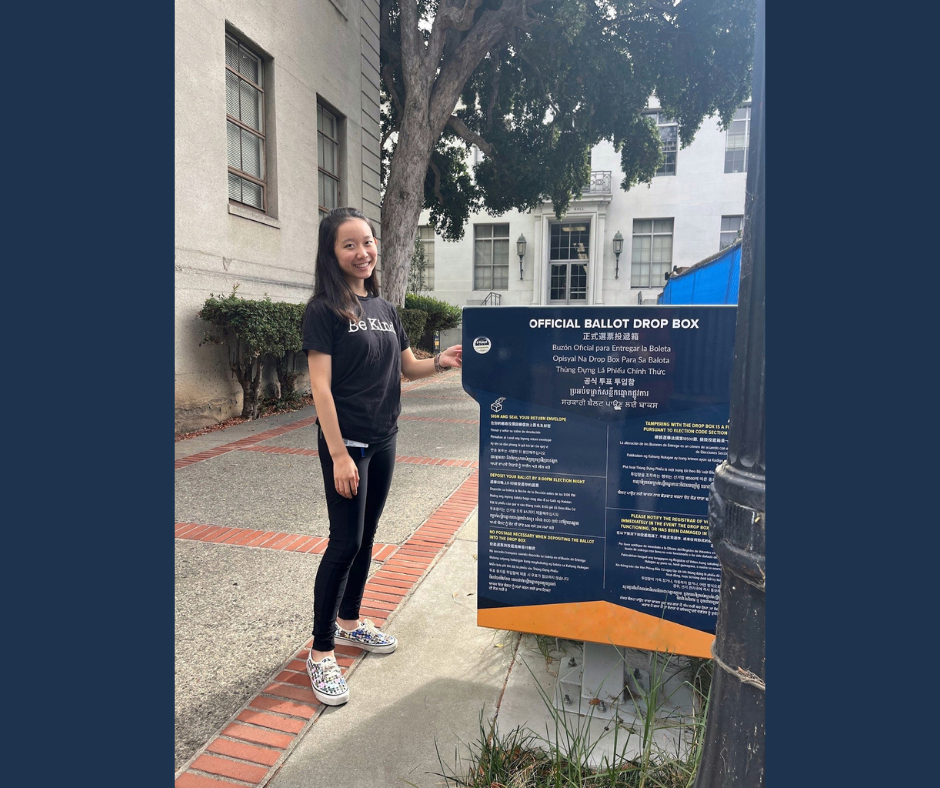Civic engagement depends on service to one’s community. Over the last two years, I have developed a global organization called Voters2Be that educates key demographic communities of Generation Z about civics, politics, and the importance of voting. Voters2Be provides free in-person and online classes to youth to boost civic engagement and ensure that teens feel prepared to be informed future voters and civic participators.
Two years ago, I was tutoring a group of students through an online tutoring class I started working at during the pandemic. When I asked if the students knew about the upcoming local elections, the students looked confused. This moment led me to question the students about the political education they get in their schools and realize the importance of civic education in empowering communities.
After researching current civic education programs and looking at political lesson plans, I launched Voters2Be. My organization’s focus is on the intersection between identity and politics. Voter turnout rates are disproportionately higher in white communities, with Black, Hispanic, and Asian communities having 10%-25% lower voter turnout rates. By targeting these communities with low voter turnout rates and looking at census data of locations with low voter turnout rates, I decided to focus Voters2Be on teaching classes to students in these communities.
Through an interactive course called Democracy and You, I work with groups of ten to twenty students over five weeks to provide the civic education they lack in school. The course introduces democracy and political issues, the importance of voting, and the history of voting rights. It is always amazing to see how engaged and curious the students I work with are. Especially in the in-person classes, the kids love to ask many questions in question-and-answer sessions and discuss and wonder about the historical roots of current voting problems. At the end of the course, students participate in an interactive voter simulation where they apply their new knowledge and learn about the voter registration process. My goal is for these students to take what they learned in my class and use it by registering to vote when they turn 18 and encouraging their parents to vote. Furthermore, I have helped the students understand how there are other forms of civic engagement they can participate in, like writing to their local politicians, attending town hall meetings, going to protests, or getting involved with organizations supporting issues they care about. Recently, I have worked at an afterschool program in Harlem, New York and in Hackensack, New Jersey.
I am currently working on expanding Voters2Be because of the large impact it has had on my community. I have launched a Research Center and recruited a staff to look at the statistics of voter turnout and current civic education programs. My research center creates a plan for the future of needed legislation related to civic engagement. I also launched a new summer civics series course to cover other important topics like local elections, the 2024 election, voter registration, and economic policy.
I have always had a passion for service work and community engagement; however, growing Voters2Be has taught me that the kindness of volunteering your time can transform the knowledge and experience of others and lead to your own personal growth.













